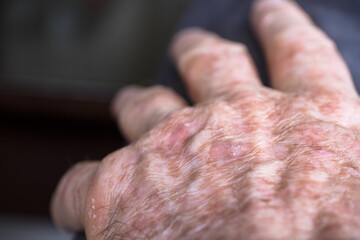By Dr Gos Gopalakrishnan
SPF 50+ sunscreen protects you from 98% of skin cancer-causing UV damage for up to two hours. Imagine if you had a 98% chance of winning the Oz Lotto—wouldn’t you buy a ticket? Now, consider this: you have a 1 in 3 chance of stopping a pre-cancerous growth from forming. Those are incredible odds! Intrigued? Read on!

Vitamins and Supplements – Money Down the Drain?
As a medical school tutor and examiner, I pride myself on my medical knowledge. Yet, every day offers new learning opportunities. We all know vitamins are big business, with the Australian vitamin and supplements industry worth $1.5 billion in 2022. But did you know the term “vitamins” originates from “vital amines”? These essential nutrients are the building blocks our bodies need.
In medical school, I learned about water-soluble and fat-soluble vitamins. Fat-soluble vitamins (A, D, E, and K) bind to fat and can be stored in our bodies, while water-soluble vitamins dissolve in body water and are excreted in urine when in surplus. Hence, the belief that most vitamin supplements result in expensive urine—literally money down the drain!
This belief was challenged when I read about high doses of Vitamin B3, also known as nicotinamide. Vitamin B3 is crucial for overall health, especially for skin health. It helps maintain the skin barrier, skin health, reduces inflammation, and may protect against skin cancer.

Vitamin B3
Vitamin B3 exists in two forms: nicotinic acid and nicotinamide. Both are essential for converting food into energy and maintaining healthy cells. Nicotinamide is particularly noted for its skin benefits, improving skin elasticity, enhancing the barrier function, evening out skin tone, and diminishing dullness. It also has anti-inflammatory properties beneficial for acne and rosacea. It can be found naturally in tuna, eggs, ginger, mushrooms and capsicums.
Research
Contrary to the notion that water-soluble vitamins are simply flushed out, several studies have shown that high levels of nicotinamide can protect against skin cancer. A notable Australian study published in the prestigious, New England Journal of Medicine found that taking 500 mg of nicotinamide twice daily reduced the incidence of non-melanoma skin cancers (basal-cell carcinoma and squamous-cell carcinoma) by 23% in high-risk individuals.
More Evidence
Another, Australian based study also highlighted nicotinamide’s effectiveness in reducing actinic keratoses, pre-cancerous skin lesions, by about 35%. This means products like Nature’s Own B3 and Blackmores Insolar can protect against UV-induced skin damage and reduce the occurrence of actinic keratoses.

Book Your Skin Check
It’s generally recommended to take 500 mg of nicotinamide twice a day for skin cancer protection. However, always consult your doctor before starting any new supplement to ensure it’s appropriate for your individual health needs. Alternatively, book an appointment with WA Skin Cancer Centre for your skin check today and talk to us about your suitability for nicotinamide supplements.
Book your skin check with us today!
References:
Chen, A. C., Martin, A. J., Choy, B., Fernandez-Peñas, P., Dalziell, R. A., McKenzie, C. A., … & Damian, D. L. A phase 3 randomized trial of nicotinamide for skin-cancer chemoprevention. New England Journal of Medicine, 2015; 373(17), 1618-1626.
Surjana, D, Halliday, GM, Martin, AJ, Moloney, FJ, Damian, DL (2012). Oral nicotinamide reduces actinic keratoses in phase II double-blinded randomized controlled trials. J Invest Dermatol 2012; 132:1497-1500
About the Author
Dr Gos Gopalakrishnan
BSc (Hons), MBChB, DRCOG, MRCGP, FRACGP
 Dr Gos is a dedicated and dynamic medical leader and educator with a deep passion for skin cancer care. Based in Perth, he specialises in skin cancer management, ensuring comprehensive care for his patients. Alongside his clinical work, Dr Gos serves on an Expert Examiner Panel at Curtin Medical School, and is the Clinical Director of Radiant Doctors, an initiative established to provide sustainable primary care services and address the shortage of GPs in regional areas.
Dr Gos is a dedicated and dynamic medical leader and educator with a deep passion for skin cancer care. Based in Perth, he specialises in skin cancer management, ensuring comprehensive care for his patients. Alongside his clinical work, Dr Gos serves on an Expert Examiner Panel at Curtin Medical School, and is the Clinical Director of Radiant Doctors, an initiative established to provide sustainable primary care services and address the shortage of GPs in regional areas.